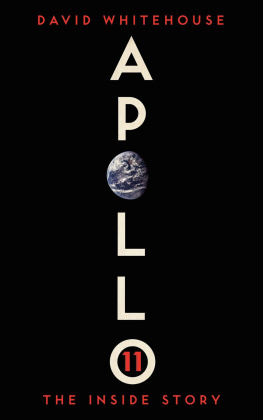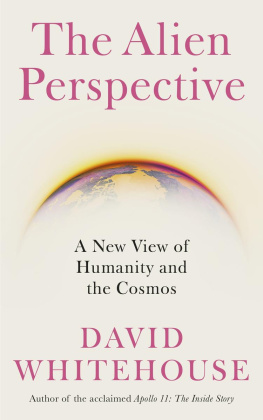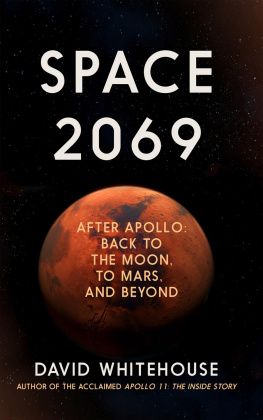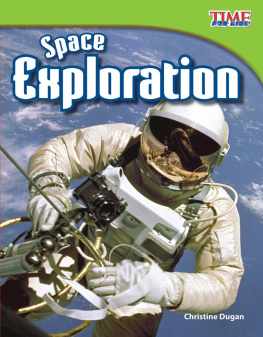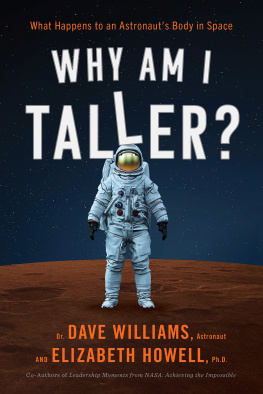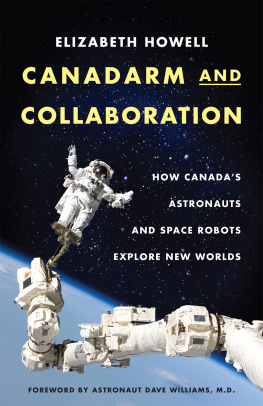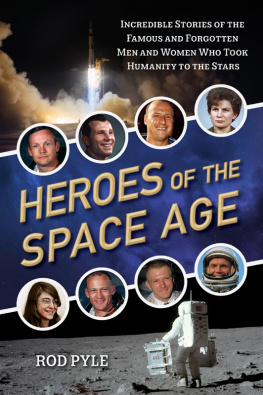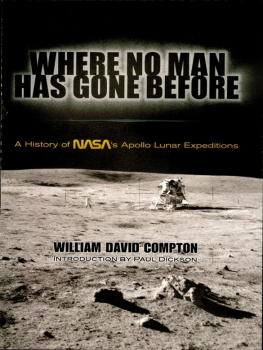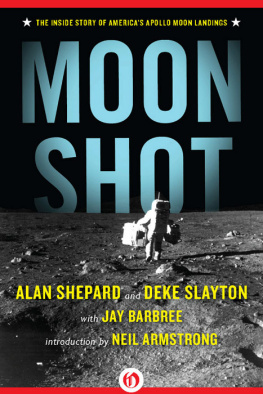



New York London
2009 by David Whitehouse
All rights reserved. No part of this book may be reproduced in any form or by any electronic or mechanical means, including information storage and retrieval systems, without permission in writing from the publisher, except by reviewers, who may quote brief passages in a review. Scanning, uploading, and electronic distribution of this book or the facilitation of the same without the permission of the publisher is prohibited.
Please purchase only authorized electronic editions, and do not participate in or encourage electronic piracy of copyrighted materials. Your support of the authors rights is appreciated.
Any member of educational institutions wishing to photocopy part or all of the work for classroom use or anthology should send inquiries to Permissions c/o Quercus Publishing Inc., 31 West 57th Street, 6th Floor, New York, NY 10019, or to .
ISBN 978-1-62365-205-0
Distributed in the United States and Canada by Random House Publisher Services
c/o Random House, 1745 Broadway
New York, NY 10019
www.quercus.com
For my late father-in-law Bernard Carey. With thanks.
Contents
Soviet rockets must conquer space!
19031957
Man will conquer space soon
19571958
I can see the clouds, everything. Its beautiful
19591961
Lets go and get the job done
19611962
Gagarin in a skirt
19621963
Friends! Before us is the Moon
19641965
They want you to get back in
19641965
Theyre in a roll and it wont stop
19651966
Were on fire! Get us out of here!
19671968
That was a real kick in the pants
1968
Apollo 8, youre go for TLI
1968
Were actually going to fly something like this?
1969
We is down among em Charlie
1969
Houston. Tranquility Base here. The Eagle has landed
1969
Houstonweve had a problem
1969
I cried a little
19701971
Ten to 15 seconds of agonizing consciousness
1971 AND 1973
Their majesty overwhelmed me
19711972
Theres something on the telemetry that doesnt look quite right
19731974
We actually came to have a very close relationship with the Soviet crew
1975
Hey, theres some tiles missing back there
1981
It marks our entrance into a new era
19821983
You could see the Sun lighting the desert way up ahead
1984
The most important thing for us was to dock
19851986
Uh oh
1986
My God, thats a lot of damage
1988 AND BEYOND
Its serious. Its serious
19942001
Off-scale low
2003
Largest structure in space
1998
The flight was spectacular
2004
INDEX
Introduction
An American president lays down a challenge to his nation that he will never live to see fulfilled. A Russian despot curses his rocket engineers and urges them to greater effort. A giant rocket explodes in a deadly fireball seconds after liftoff, ending the lives of those on board and the dreams of those watching on the ground. One moonwalker takes mankinds first steps on another world, while another writes his daughters name in the lunar dust. A German SS soldier dreams of space, while at the same time a prisoner digs a grave in a Soviet death camp, never thinking that he will ever see space travellet alone be one of its key pioneers. A crew of astronauts come close to a lonely death on their journey to the Moon. Another crew, at another time, know they will never reach home again.
These are just a few of the multitude of momentous events that have come to symbolize our enduring fascination with space travel and space exploration. When do such events become legends? When does our history turn to something more than merely moments in time? How long does it take for us to appreciate the true significance of the times we have lived through? Without doubt, when the history of the 20th century is written, one of its the major landmarks will be the journey into space. In many years to come, when much of todays modern history will be footnotes, Sputnik, Gagarin, Armstrong and his one small step will still be headlines. Across the growing centuries future historians will look upon the 20th century as the time when things changed forever, the time when mankind left its home planet and ventured out but a short distance into space. When, for a while, we achieved greatness.
Strange then that it is a story so few know in any detail. In schools we teach the voyages of Columbus, Vasco da Gama, Marco Polo and Amundsen, but seldom the greater voyages of Gagarin, Borman, Lovell or Anders, or even those of Armstrong, Aldrin and Collins.
There are many threads that can be drawn through the story of the astronauts, and each time the story is told, it is a slightly different weave. This is one story about the great things spacemen and space women have done for us; of the way they wrote history. Dreams and tragedies, pride and mourning, conflict and immortalityall are intertwined in the story of mankinds steps in space. It is not just a technological tale of rockets, satellites and spaceships. It is much more a story of special human beings overcoming all obstacles and setbacks to fulfill their dreams and the dreams of others. It is, I believe, our greatest story, and it is best told in the words of those who were there.
Over the years I have been fortunate enough to meet many astronauts, cosmonauts and others involved in this great adventure, and they have been kind enough to share their stories with me. I am also indebted to NASA for its extensive history program that is a rich source of interviews, analysis and technical data.
David Whitehouse
Soviet rockets must conquer space!
REALIZING THE DREAM
WERNHER VON BRAUN AND SERGEI KOROLEV
19031957
In the 20th century it finally began to seem that Mankinds long-held vision of traveling in space could become a reality. Yet despite the peaceful ambitions of the early pioneers of rocketry and space flight, the technology needed for such an event was developed initially to produce weapons of war.
First there were the dreamers, then came the practical men and women, and finally the voyagers themselves. The origin of the space programs of the 20th century can perhaps be traced back to the late 1800s and the ideas of a deaf, self-educated Russian school teacher called Konstantin Eduardovich Tsiolkovsky. Born in 1857, his writings, frequently visionary if sometimes far-fetched, put substance to mankinds nascent dreams of escaping from our planet and journeying into the cosmos. He wrote of multistage rocket boosters and space stations orbiting the Earth. It was Tsiolkovsky, along with the later generation of rocket pioneers, the American Robert Goddard and the German Hermann Oberth, who prepared the way for what followed. But while all three dreamed of space travel, only Tsiolkovsky thought it would never come to pass.


